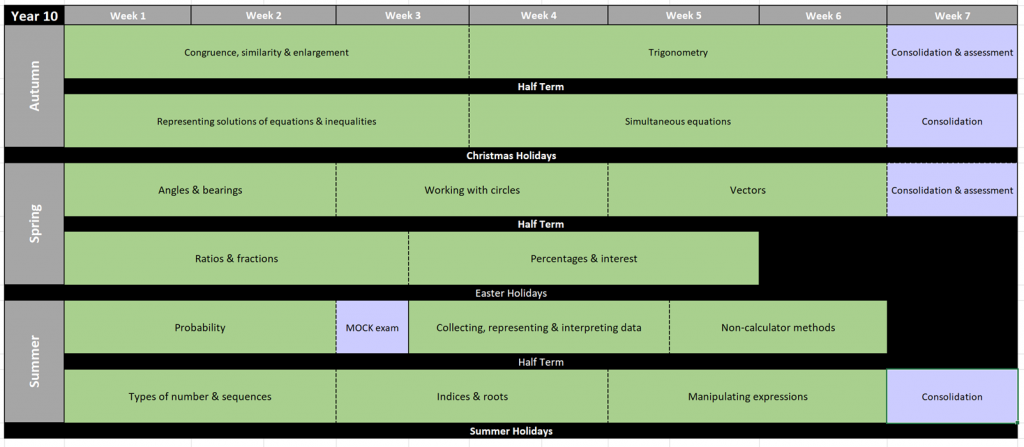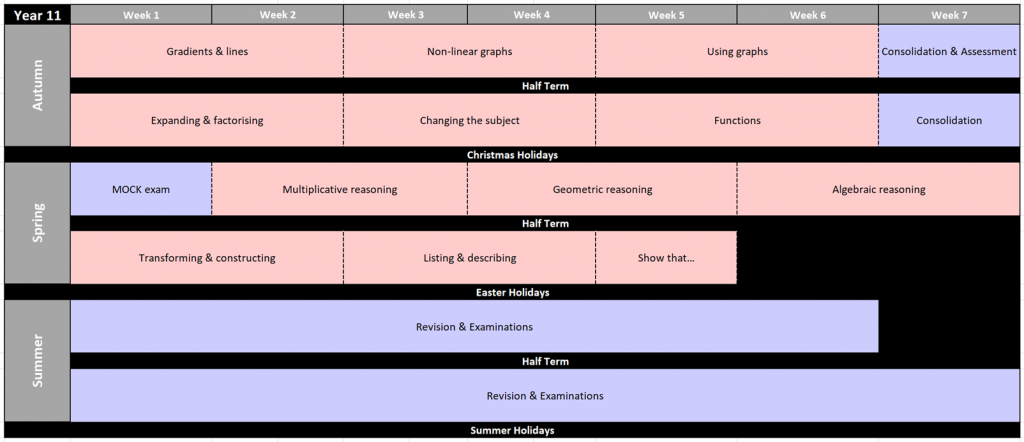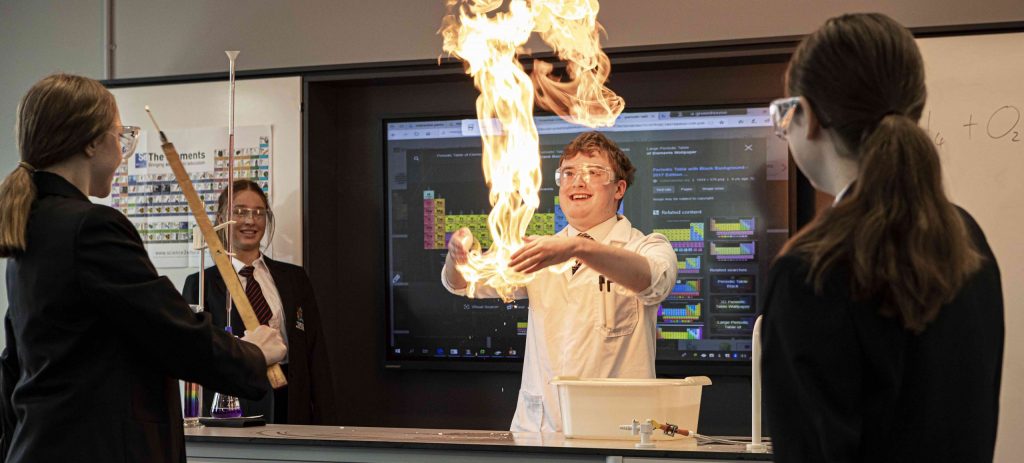Schemes of Learning
In years 10 and 11, pupils explore the content specified by the National Curriculum for Key Stage 4 Mathematics. The curriculum is designed to support, challenge and stretch pupils and build upon their Key Stage 3 knowledge and application. At the end of year 11, pupils sit their GCSE Mathematics exam. The GCSE qualification studied is the Edexcel Level 1/Level 2 GCSE (9–1) in Mathematics (1MA1).
Year 10 Scheme of Learning

Year 11 Scheme of Learning

Assessment and Feedback
At the end of each unit, pupils complete a low-stakes assessment allowing them to consolidate their learning and close any gaps in their knowledge. A more formal assessment takes place each term, based on the content they have been learning in lessons. Following these assessments, pupils receive an in-depth analysis, detailing their areas of strength and development. Homework is set weekly, through a combination of paper-based and online homework. All pupils are subscribed to the website Mathswatch where they complete their online homework and work independently to further progress.
Useful Revision Websites
Pupils can revise for mathematics independently using the following websites which include videos, questions and answers:
Corbettmaths – Videos, worksheets, 5-a-day and much moreMaths Genie –
Free Online GCSE and A Level Maths Revision
Extra-Curricular Activities
Pupils are invited to weekly booster sessions after school where they focus on their areas for development. Other intervention opportunities are organised throughout year 10 and 11, including one-to-one tutoring sessions through the MyTutor programme and Raising Achievement evenings where pupils complete a variety of exam-style questions to support with their GCSE examinations.
Pupils are invited to a weekly maths club where they tackle interesting problems that help to deepen their knowledge of mathematics. Some of the activites include Mystic Rose, Pascal’s Triangle and building 3D shapes. Maths club is an enjoyable learning experience that allows pupils to apply maths to a variety of scenarios.
A selection of pupils across Key Stage 4 take part in the annual UK Intermediate Mathematical Challenge which is a competition designed to encourage mathematical thinking and problem solving. Pupils compete against other schools across the country and the most successful pupils receive either a bronze, silver or gold award.



